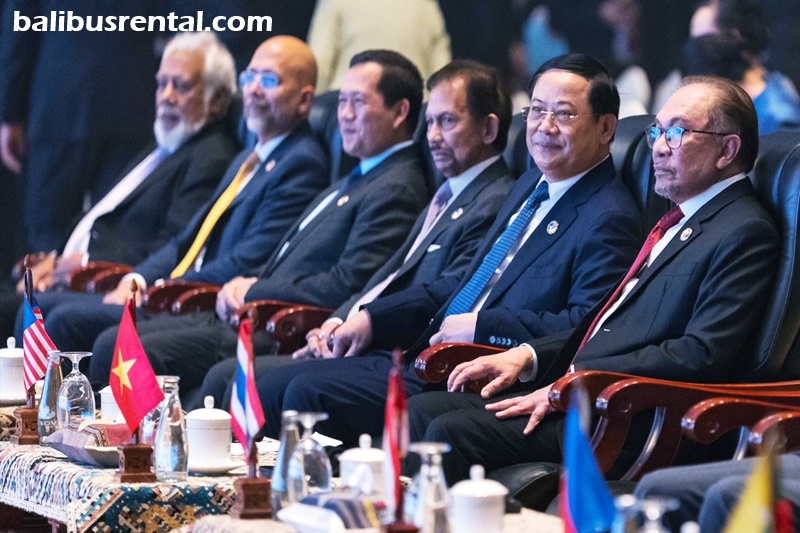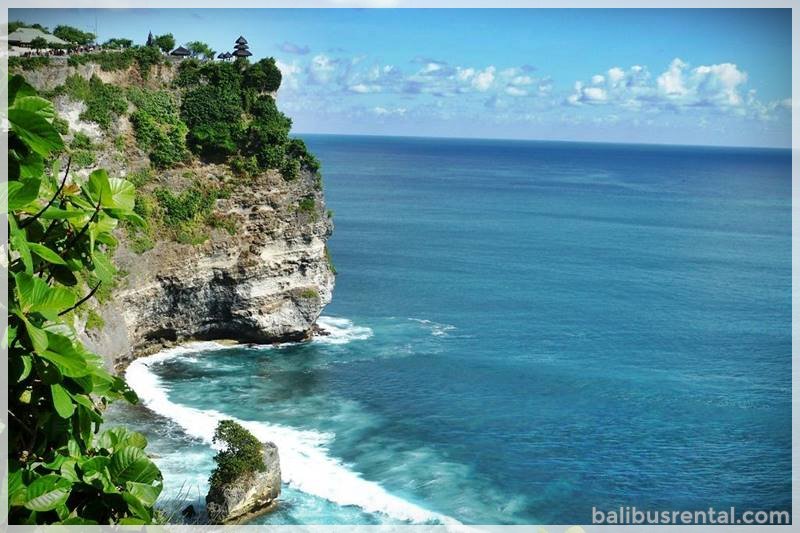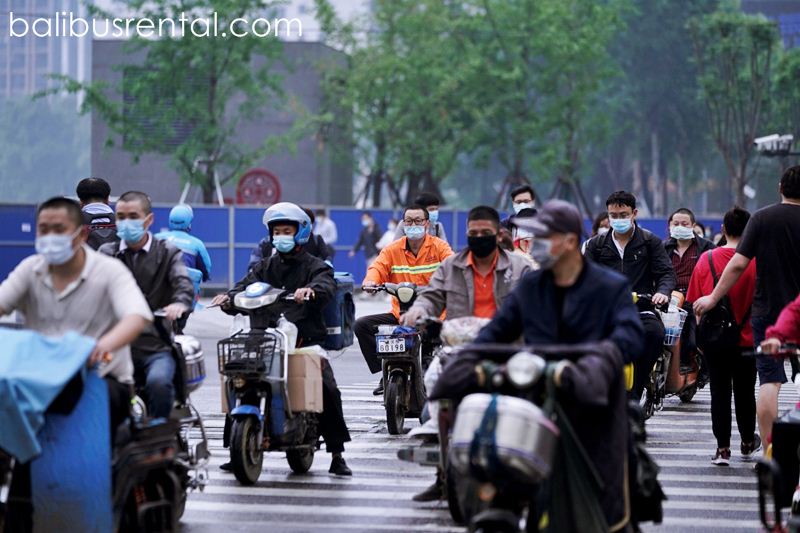Friday | 07 Feb 2025 | 09:50PM
KUALA LUMPUR: Details regarding the members of an informal advisory group for Malaysia’s chairmanship of the Association of Southeast Asian Nations (ASEAN) have surfaced gradually since Prime Minister Anwar Ibrahim first disclosed nearly two months ago that former Thai premier Thaksin Shinawatra would lead the team.
Analysts told CNA that Malaysia may be deliberately keeping these details ambiguous to allow Anwar the flexibility to consult his advisers without ASEAN’s bureaucratic constraints, especially since the advisory group operates outside official government structures.
According to Malaysia’s Foreign Minister Mohamad Hasan, who spoke in parliament on Thursday (Feb 6), the latest potential additions to the group include a senior statesman from Laos and Brunei’s Sultan Hassanal Bolkiah.
The absence of official statements on the advisory team is intentional, said Asrul Hadi Abdullah Sani, a partner at strategic advisory firm ADA Southeast Asia. “This approach ensures that the group remains informal, allowing Anwar to seek advice without being hindered by ASEAN’s bureaucratic red tape,” he explained.
Similarly, Sharon Seah, senior fellow and coordinator at the ISEAS-Yusof Ishak Institute’s ASEAN Studies Centre, noted that Malaysia’s Prime Minister’s Office (PMO) and Ministry of Foreign Affairs are not in a position to issue formal statements. “These appointments are informal and exist outside the official government framework,” she said.
Other analysts pointed out that this deliberate ambiguity enables Anwar to appoint prominent figures to his advisory team without requiring official approval from their respective governments. It also allows Malaysia to gauge the reactions of other ASEAN member states before making definitive commitments.
By not publicly announcing the full list of advisers, Malaysia also frees the team members from being perceived as making “official” commitments during sensitive negotiations. This could be particularly crucial in backdoor discussions on Myanmar’s political crisis, where informal diplomatic channels might yield more progress than official ASEAN mechanisms.
While this strategic vagueness offers certain advantages, some observers warned that Anwar’s approach risks alienating regional governments and sidelining his own officials, many of whom already possess the necessary diplomatic expertise. They argue that bypassing formal government structures could create tensions within Malaysia’s diplomatic circles.
ASEAN comprises 10 member states: Brunei, Cambodia, Indonesia, Laos, Malaysia, Myanmar, the Philippines, Singapore, Thailand, and Vietnam. As Malaysia prepares to assume the ASEAN chairmanship, the composition and role of this advisory group will likely remain a topic of keen regional interest.
During Thai Prime Minister Paetongtarn Shinawatra’s official visit to Putrajaya last December, Malaysian Prime Minister Anwar Ibrahim announced that her father, former Thai premier Thaksin Shinawatra, would lead an informal advisory team for Malaysia’s ASEAN chairmanship.
Anwar also mentioned that former Singaporean Foreign Minister George Yeo was a potential member of the team, emphasizing that he sought “the benefit of the experience of such statesmen.”
Subsequent media reports suggested that former Indonesian Foreign Minister Retno Marsudi and former Cambodian Prime Minister Hun Sen could also be included in the advisory group.
Analysts previously told CNA that these experienced political figures could provide valuable insights into complex regional challenges, such as the Myanmar crisis and South China Sea tensions, while remaining independent from the formal constraints of ASEAN and their respective governments.
For example, Thaksin’s inclusion is believed to be linked to his familiarity with Myanmar’s political landscape and his established connections within the country.
Despite ongoing speculation, Malaysia’s Foreign Affairs Ministry and Prime Minister’s Office have not officially confirmed the full composition of this informal advisory team. Queries from CNA to these entities have so far gone unanswered.
On February 2, Anwar shared on Facebook that he had met with Thaksin and Yeo over dinner to discuss regional issues, including the situation in Myanmar and developments in cryptocurrency. Also present at the dinner was Malaysia’s Institute of Strategic and International Studies (ISIS) chairman Mohd Faiz Abdullah, though Anwar did not mention him by name in his post. A representative from the think tank declined to comment on Mohd Faiz’s role in the meeting or the specific topics discussed.
During a parliamentary session on Thursday, Malaysia’s Foreign Minister Mohamad Hasan responded to a question about whether Malaysia would use Thaksin’s influence to help resolve conflicts in Myanmar and southern Thailand. He clarified that Thaksin serves as an adviser to Anwar, not to ASEAN.
“It’s not just Thaksin; he’s just one of them. The ASEAN chair will also appoint others from different countries as advisers,” Mohamad Hasan said.
“This includes senior elder statesmen from Singapore, Laos, and others. The Sultan of Brunei, the longest-serving ASEAN leader, has also given the green light—he is open to offering advice at any time.”
However, criticism from academics regarding Malaysia’s early handling of its ASEAN chairmanship has brought Anwar’s approach under scrutiny. This has prompted strong dismissals from ruling coalition lawmakers, who defended Anwar’s strategy amid growing regional and domestic debate.
IS THAKSIN THE RIGHT MAN?
In a commentary titled “Malaysia’s ASEAN chairmanship is off to a disappointing start,” published by Benar News on January 29, Bridget Welsh, an honorary research fellow at the University of Nottingham Malaysia’s Asia Research Institute, expressed concerns that Malaysia’s ASEAN leadership might become too focused on Anwar Ibrahim himself rather than ASEAN as a whole.
“Malaysia’s chairmanship risks the potential of being too much about Anwar, and not enough about ASEAN,” she wrote.
Welsh specifically criticized Anwar’s decision to appoint former Thai Prime Minister Thaksin Shinawatra as an informal ASEAN adviser, arguing that this move was unpopular in politically divided Thailand and failed to acknowledge that Thaksin’s past involvement in Myanmar’s crisis had not yielded positive outcomes.
Her commentary was widely circulated and picked up by multiple news outlets, eventually prompting strong rebuttals from three members of parliament belonging to Anwar’s Pakatan Harapan coalition.
Defending Thaksin’s appointment, Bakri MP Tan Hong Pin described it as a strategic move, emphasizing Thaksin’s extensive experience in regional politics and economic diplomacy. Similarly, Petaling Jaya MP Lee Chean Chung argued that Anwar’s choice was an “astute” decision, given Thaksin’s background in handling issues related to Indochina and Myanmar.
Meanwhile, Jelutong MP RSN Rayer took a more confrontational stance, questioning Welsh’s authority to comment on Malaysia’s leadership.
“I wonder who this foreign academic Bridget Welsh is to keep slamming the Madani government and Prime Minister Datuk Seri Anwar Ibrahim,” he said in a statement.
He also defended Thaksin’s credentials, stating:
“Thaksin has been an influential figure in the region for three decades, and his daughter is now Thailand’s Prime Minister. Of course, he has political influence, economic clout, and ideas to enhance regional cooperation.”
In response, Welsh told CNA that while engaging informal advisers to the ASEAN chair may offer some benefits, it is only a “marginally positive” step in resolving the Myanmar crisis. She emphasized the need for inclusive engagement with local stakeholders.
“The informal advisers risk alienating key stakeholders. Thaksin, for example, is not trusted by many ethnic armed groups in Myanmar,” she said.
She also warned that Anwar’s advisory team appears to be forming an exclusive “boys’ club”, which could alienate regional governments by shifting ASEAN decision-making closer to the Prime Minister’s Office rather than ASEAN’s Foreign Ministry or Secretariat.
“A more formal and inclusive expert committee on Myanmar—one that includes professionals, not just politicians—would likely be more effective,” she added.
A former Malaysian diplomat with extensive experience across three continents echoed this perspective. Speaking to CNA, he remarked that Anwar’s reliance on foreign advisers is unsurprising, given his ambition to “make his mark” as ASEAN chair.
“Anwar’s leadership style favors relying on a small circle of personally selected advisers rather than leveraging his own cabinet and the broader government apparatus,” said the former diplomat, who spoke on condition of anonymity.
However, he cautioned that sidelining his own team could be counterproductive, as Anwar will require the full support of key government agencies to succeed as ASEAN chair.
“This is also an opportunity for Malaysia to make a lasting impact on the region, but bringing in foreign advisers risks becoming a distraction,” he added.
“It remains unclear what unique value these foreign advisers can offer that isn’t already available within Malaysia’s own diplomatic and government establishment.”
“DIPLOMATIC FLEXIBILITY”
James Chin, a professor of Asian Studies at the University of Tasmania, told CNA that Thaksin Shinawatra maintains strong connections with the Myanmar junta, which gives him an advantage in engaging its leadership—something that younger ASEAN leaders or officials may struggle with.
“Thaksin doesn’t hold an official political position, so the junta may be more willing to speak openly with him. Perhaps they feel more comfortable sharing their views on how they want to resolve the Myanmar crisis,” Chin explained.
He also suggested that Malaysia’s reluctance to disclose the full membership of the informal advisory team could be a strategic move, allowing these figures to engage with Myanmar’s leadership more candidly—a tactic he referred to as diplomatic flexibility.
“The Malaysian government can’t make it official because if these advisers meet with Myanmar’s leadership, any discussions or commitments could be perceived as official promises,” he said.
“By keeping the advisory role informal, these figures can explore different options freely without the pressure of having to deliver on every discussion.”
Chin also pointed out that another possible reason for the ambiguity is to give Anwar Ibrahim greater flexibility in engaging influential figures from various countries without requiring formal approval from their respective governments.
While Anwar Ibrahim stated that he had received Paetongtarn Shinawatra’s approval to appoint Thaksin as an adviser, he did not indicate whether the same courtesy was extended to George Yeo or if the Singaporean government had been consulted. Yeo, when asked about his involvement, redirected CNA’s queries to Malaysia’s Prime Minister’s Office (PMO).
James Chin explained that keeping the advisory roles informal helps Malaysia avoid the bureaucratic complexities of securing approval from all ASEAN member states.
“The moment you make them official advisers, you need the consent of all ASEAN countries,” he said.
“To keep things simple, you just call them ‘unofficial advisers’—they have connections in Myanmar, China, and elsewhere. Let them engage, have discussions, and see what opportunities arise. There’s no downside.”
WHO ELSE MIGHT BE IN AND WHY?
Azmi Hassan, a senior fellow at the Nusantara Academy for Strategic Research, noted that Malaysia’s Prime Minister’s Office (PMO) has provided little official information about the advisory team, with most details emerging sporadically from Anwar Ibrahim himself.
“Regarding the recent discussions with Thaksin, we know Myanmar was a key topic, but with George Yeo, we still have no clarity,” Azmi said. “As for whether Hun Sen or Retno Marsudi will be involved, that remains unknown as well.”
He suggested that Anwar and the PMO are adopting a “wait-and-see” approach, monitoring how other ASEAN members react to the strategy of appointing unofficial advisers to the ASEAN chair.
On the revelation that Laos and Brunei could also be involved, Azmi speculated that Anwar might be aiming to include representatives from all nine other ASEAN countries, adhering to the Southeast Asian diplomatic tradition of “saving face” and maintaining regional harmony.
He further noted that Brunei’s Sultan Hassanal Bolkiah may have agreed to provide informal advice, despite being a head of state, due to his long-standing cordial relationship with Anwar.
“There’s nothing unusual about it when viewed from that perspective,” Azmi added.
“But as I see it, Thaksin is already involved, Hun Sen is likely to join, George Yeo from Singapore is on board, and now we hear of Laos and Brunei’s Sultan. It wouldn’t be surprising if Datuk Seri Anwar decides to seek guidance from four more regional leaders.”
Meanwhile, Jamil Ghani, a doctoral candidate at the S. Rajaratnam School of International Studies, described Anwar’s decision to approach the Brunei Sultan as an adviser as somewhat unconventional.
“Typically, advisory roles are filled by individuals not currently holding official positions, allowing them to provide counsel without the constraints of active governance,” he told CNA.
Sultan Hassanal Bolkiah is widely regarded as a neutral figure in regional affairs, and Anwar Ibrahim’s move to involve him could be aimed at leveraging his influence to address complex regional issues, such as disputes in the South China Sea.
Asrul Hadi Abdullah Sani of ADA Southeast Asia noted that it is understandable for Anwar to seek the counsel of diplomatic heavyweights to help steer Malaysia’s ASEAN chairmanship, with Myanmar’s ongoing crisis appearing to be a key focus of these efforts.
He pointed out that George Yeo was introduced to Anwar in 1990 by the late Daim Zainuddin, Malaysia’s former finance minister, and that Anwar and Yeo have maintained their relationship ever since. Yeo brings valuable experience from his advisory roles in both the corporate and diplomatic sectors.
Similarly, both Hun Sen and Retno Marsudi have extensive experience engaging with the different factions and military leadership in Myanmar, Asrul Hadi said.
“As the former ASEAN chair, Hun Sen has attempted to broker solutions, while Retno, as ASEAN’s special envoy to Myanmar in 2023, also worked toward conflict resolution,” he explained.
Instead of appointing a single special envoy to Myanmar—like previous ASEAN chairs—Indonesia, during its 2023 chairmanship, opted for a special envoy’s office, led by Retno Marsudi and senior diplomat Ngurah Swajaya.
Questions Surrounding ISIS Malaysia’s Mohd Faiz Abdullah
Another point of interest is the involvement of Mohd Faiz Abdullah, chairman of the Institute of Strategic and International Studies (ISIS) Malaysia, in Anwar’s advisory network.
According to his official biography, Mohd Faiz is also Malaysia’s representative to the ASEAN Regional Forum Experts and Eminent Persons Meeting, a platform for open discussions and policy recommendations on regional security matters.
Sharon Seah of the ISEAS-Yusof Ishak Institute explained that ISIS Malaysia is leading the country’s Track 2 diplomacy efforts—a non-governmental, informal approach to regional conflict resolution and cooperation.
“Prime Minister Anwar could be relying on Prof Mohd Faiz Abdullah to bridge the gap between his **informal advisory group, the Track 2 community, and Malaysia’s Foreign Ministry (Wisma Putra),” Seah added.




